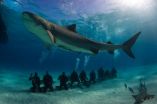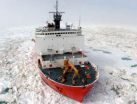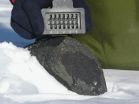(Press-News.org) One only has to be reminded of the BSE crisis and the MMR vaccine scare to recognise the importance of having policy informed by the best available science. Now, a collaboration of over fifty academics and policy makers from around the world have come together to agree a new research agenda on the role of science in public policy. The findings appear today Friday, 09 March in PLoS ONE, a leading interdisciplinary open-access journal.
The importance of using science for public policy has long been recognised, but recent years have seen a growing debate over how this is best achieved. 'Evidence-based policy' has become the desired norm, and this has led to a greater embedding of scientists alongside other specialists in public policy. In many governments, scientists are engaged at a senior level. For example, in the UK, in addition to the Government Chief Scientific Adviser, all government departments have a dedicated Chief Scientific Adviser post.
In spite of their acknowledged importance, however, relations between science and policy are sometimes troubled, and periodically erupt into controversy. Prominent examples include the acrimonious debate over scientific understandings of climate change and the continuing disputes over the use of genetically modified crops and foods.
The aim of this project was to identify key questions which, if addressed through focused research, could both address important theoretical challenges and also improve the mutual understanding and effectiveness of those who work at the interface of science and policy.
To address these issues, Professor William Sutherland, from the University of Cambridge, working with the University's Centre for Science and Policy (CSaP), convened a unique workshop which brought together 52 leading scientists and policy makers to agree a new research agenda. They came from a wide range of academic disciplines (including the physical, biological, environmental, medical, and social sciences) as well as government, NGOs and industry. Initially, each participant was invited to produce a list of questions; through a process of voting, deliberation and further voting, the initial list was distilled into a final set of 40 questions.
Explaining the significance of the research, Professor Sutherland said: "When public policy is supported by scientifically-sound evidence, it is to the benefit of all of society. In order to strengthen the relationship between science and policy, we have, for the first time, compiled a clear set of research questions on scientific advice to governments."
The final questions include an examination of how the design of scientific advisory systems affects policy outcomes (Q18), whether making science advice more transparent has improved its quality (Q35) and how to ensure early identification of policy issues that require scientific advice (Q10).
Others, for example, include:
What is the effectiveness of different techniques for anticipating future policy issues requiring science input? (Q17)
How and why does the role of scientific advice in policy-making differ among local, regional, national and international levels of governance? (Q19)
How do policy makers understand and respond to scientific uncertainties and expert disagreements? (Q29)
Dr Miles Parker, Director of Science, Defra, said: "As a science adviser to government, I want to know 'what works' when it comes to ensuring that sound evidence informs public policy. This collaborative, multidisciplinary approach to devising a research agenda was very worthwhile. Understanding the relationship between science and policy is an area of research that needs more attention."
Dr Robert Doubleday, Head of Research, Centre for Science and Policy (CSaP) at the University of Cambridge, said: "For the first time scientific advisers, policy makers, and academics who study science policy have come together through a structured process to agree a common research agenda. This is a critically important step as too often in the past there has been a serious disconnect between the theory and practice of science policy. This paper will help overcome this gap. At CSaP we are committed to assessing progress made towards addressing these questions."
###
For additional information please contact:
Genevieve Maul, Office of Communications, University of Cambridge
Tel: direct, +44 (0) 1223 765542, +44 (0) 1223 332300
Mob: +44 (0) 7774 017464
Email: Genevieve.maul@admin.cam.ac.uk
Notes to editors:
The paper 'A collaboratively-derived science policy research agenda' will be published in the 09 March 2012 edition of PLoS ONE. After the embargo lifts, the paper can be viewed at http://dx.plos.org/10.1371/journal.pone.0031824
END
LONDON – (March 8, 2012) -- Ecotourism activities that use food to attract and concentrate wildlife for viewing have become a controversial topic in ecological studies. This debate is best exemplified by the shark dive tourism industry, a highly lucrative and booming global market. Use of chum or food to attract big sharks to areas where divers can view the dwindling populations of these animals has generated significant criticism because of the potential for ecological and behavioral impacts to the species. However, the debate has been largely rhetorical due to a lack ...
Washington, DC – A new linguistic study of how individuals interpret various types of utterances sheds more light on how literal and contextual meaning are distinguished. The study, "A novel empirical paradigm for distinguishing between What is Said and What is Implicated," to be published in the March 2012 issue of the scholarly journal Language, is authored by Ryan Doran, Gregory Ward, Meredith Larson, Yaron McNabb, and Rachel E. Baker, a team of linguists based at Northwestern University. A preprint version is available online at:
http://lsadc.org/info/documents/2012/press-releases/doran-et-al.pdf
Within ...
A recent summit that brought together international multidisciplinary experts has provided a foundation for addressing what is the leading cause of disability in the United States: osteoarthritis.
Currently, validated pharmacologic interventions do not exist for effectively eliminating pain and restoring function during progression of osteoarthritis, a disease whose prevalence is expected to dramatically rise within the next decade and inflict a huge economic impact on society. The summit, which was hosted by Hospital for Special Surgery in New York City, is a first ...
If you've been thinking our world is more green than frozen these days, you're right. A recent study has found that spring is indeed arriving earlier – and autumn later – in the suburbs of Baltimore and Washington, D.C. The reason? The urban landscape traps heat in the summer and holds it throughout the winter, triggering leaves to turn green earlier in the spring and to stay green later into autumn. The result is a new, extended growing season.
Scientists used high-resolution satellite data collected over the past 25 years to look at the number days that trees have green ...
LOS ANGELES (March 9, 2012) – Rowan T. Chlebowski, M.D., Ph.D., an LA BioMed investigator whose research activities have focused on breast cancer therapy and prevention, and chronic diseases impacting women's health, is co-author of a study that indicates that women who use the estrogen-only form of menopausal hormone therapy appear less likely to develop breast cancer in the longer term, according to new research which was recently published The Lancet Oncology.
A follow-up study of over 7,500 women from the Women's Health Initiative (WHI) trial who took estrogen for ...
Researchers in New Zealand have developed a prototype Bluetooth-enabled medical monitoring device that can be connected wirelessly to your smart phone and keep track of various physiological parameters, such as body temperature, heart rate, blood pressure and movements. The prototype could be extended to include sensors for other factors such as blood glucose as well as markers for specific diseases. The connectivity would allow patients to send data directly to their healthcare provider and receive timely advice and medication suggestions.
Writing in the International ...
Detergents are everywhere – in washing powders, dishwashing liquids, household cleaners, skin creams, shower gels, and shampoos. It is the detergent that loosens dirt and fat, makes hair-washing products foam up and allows creams to be absorbed quickly. Up until now, most detergents are manufactured from crude oil – a fossil fuel of which there is only a limited supply. In their search for alternatives, producers are turning increasingly to detergents made from sustainable resources, albeit that these surfactants are usually chemically produced. The problem is that the ...
WASHINGTON -- The U.S. Coast Guard Cutter HEALY (WAGB 20) successfully experimented with NRL's TacSat-4 communications satellite, Jan. 24, by communicating from the Bering Sea off the western coast of Alaska to Coast Guard Island, Alameda, Calif.
Returning from an escort and icebreaking mission to Nome, Alaska, assisting the Russian tanker Renda delivery of emergency fuel to the town, USCGC HEALY — Coast Guard's only polar icebreaker — was approximately 260 nautical miles south of the Arctic Circle at the time of the test.
Deployed into a unique, highly elliptical ...
The first global high-resolution map of the boundary between Earth's crust and mantle – the Moho – has been produced based on data from ESA's GOCE gravity satellite. Understanding the Moho will offer new clues into the dynamics of Earth's interior.
Earth's crust is the outermost solid shell of our planet. Even though it makes up less than 1% of the volume of the planet, the crust is exceptionally important not just because we live on it, but because is the place where all our geological resources like natural gas, oil and minerals come from.
The crust and upper mantle ...
Creating some of life's building blocks in space may be a bit like making a sandwich – you can make them cold or hot, according to new NASA research. This evidence that there is more than one way to make crucial components of life increases the likelihood that life emerged elsewhere in the Universe, according to the research team, and gives support to the theory that a "kit" of ready-made parts created in space and delivered to Earth by impacts from meteorites and comets assisted the origin of life.
In the study, scientists with the Astrobiology Analytical Laboratory ...




